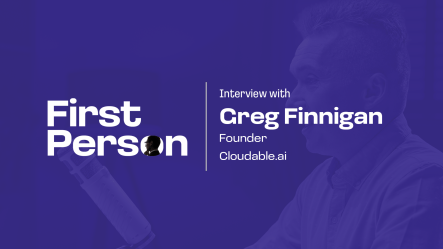AI is changing everything — work, learning, security. The key for enterprises? For one CTO, it’s been to use it smartly, openly and responsibly.

Utpal Chakraborty is chief technology officer at IntellAI NeoTech, leading AI strategy and implementation across multiple industries.
Formerly Head of AI at YES Bank, he established the organization’s first AI Center of Excellence and delivered pioneering projects such as a multi-channel conversational banking platform and enterprise-wide predictive analytics.
In this exclusive interview with the Champions Speakers Agency, Utpal Chakraborty shares insights on AI’s potential to transform operations, the lessons learned from large-scale deployments, and the principles enterprises must follow to adopt AI responsibly.
Q: How will AI change the way enterprises operate on a daily basis?
Utpal Chakraborty: “It is already changing our lives. Knowingly or unknowingly, we are using a lot of AI models in our daily lives. The best example is the smartphone, which is loaded with many AI models — either running on the device or connected to the cloud.
“Looking ahead three to five years, AI has become more of a horizontal technology — it can be embedded in any application or platform. We will see more proliferation of intelligent algorithms in every area of life. Automation will become more cognitive, incorporating human intelligence for more intelligent processes.
“Decision-making will be far more data-driven and accurate, relying on past data and facts, combined with AI algorithms. Customer experience and service are already being revolutionized by AI, and this will continue. Remote and flexible working is also becoming popular, and AI can help maintain productivity and quality in this environment.
“Upskilling is another area where AI will be important. AI can identify strengths and weaknesses in individuals and personalise training to improve job performance. Security is also a concern, as we live in an IoT-enabled world. All IoT devices are essentially small computers and are hackable, so AI will also enhance cybersecurity in the future.”
Q: What can enterprise leaders learn from your AI initiatives at YES Bank?
Utpal Chakraborty: “My journey at YES Bank was a little different. Initially, we started an Artificial Intelligence Centre of Excellence — the first officially declared AI Center of Excellence in India’s banking sector.
“We began with data engineering, then moved into data science. One of our first initiatives was building a customer 360-degree data view — gathering data from all sources to create a comprehensive profile.
“We then developed the YES Robot platform, a conversational banking platform unique at that time. It enabled transactions through multiple channels — WhatsApp, chatbots, Alexa, Google Home, smartwatches and more. The goal was not just to answer questions, but to enable real transactions such as booking deposits, changing nominees or applying for loans.
“We also worked on cognitive entity extraction from unstructured documents and enhanced customer experience across digital channels. Predictive analytics was introduced in different areas to provide valuable insights by running models on top of live data.”
Q: What principles should guide enterprises in using AI ethically?
Utpal Chakraborty: “The definition of ethics can differ between people, as ethics cannot be enforced like regulations. It is more about moral values, guidelines and best practices.
“Transparency is critical — from the code and architecture to the data used for training models — and should be made as visible as possible to stakeholders. Explainable AI plays a big role here. Bias is another major issue, often coming from the data itself, and needs to be addressed to prevent cascading effects.
“Data privacy is also crucial, with stronger protections already in place in regions like Europe and the US. A regulatory framework should define accountability — if something goes wrong, it must be clear who is responsible.”
Q: How can AI drive large-scale transformation across sectors?
Utpal Chakraborty: “There are many ways where AI can help India as a country to grow. Some of the aspects that I would like to mention are essentially economic development.
“We are developing our country, and we definitely have a lot of economic challenges which need to be addressed — either through technology or through some changes in our socio-economic stature. Here, technology plays a major role, and a technology like AI can definitely enhance our economic growth and contribute to our GDP.
“India’s healthcare sector needs a lot of attention, and a technology like AI can really revolutionize this sector, from public health through to tackling healthcare issues in villages and other areas. Education is another area, especially rural education. Technologies like AI, and many others combined, can revolutionize the education sector in rural and semi-urban areas of India.
“India also has a huge IT workforce, which can easily be converted into a strong base of data scientists because we have the necessary platforms and resources to train them. Agriculture is another key sector — as a primarily agriculture-based country, AI could have a major impact here too.”
This article is published as part of the Foundry Expert Contributor Network.
Want to join?










